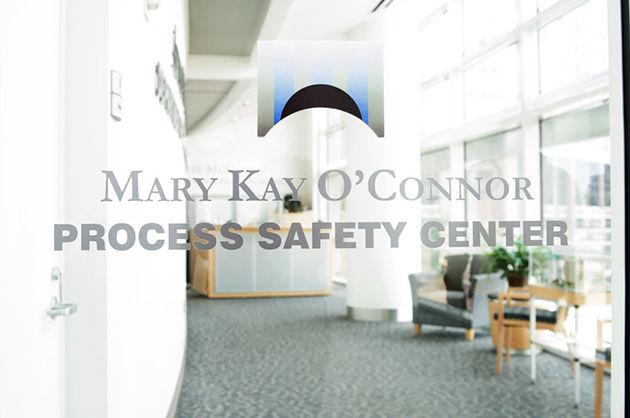The death of Mary Kay O’Connor in the 1989 Phillips Petroleum Complex explosion in Pasadena led to a call for a greater emphasis on process safety in chemical engineering.
Established in 1995, the Mary Kay O’Connor Process Safety Center is dedicated to its namesake’s service in the field, said Valerie Green, associate director of the MKO Process Safety Center.
“Mary Kay O’Connor was a chemical engineer and an Operations Superintendent at a major chemical company in Houston where she died in an explosion in 1989,” Green said. “After that, Mr. O’Connor called for a proposal to 10 different universities because he wanted process safety to be introduced at the academic level before engineers walked into facilities.”
M. Sam Mannan, director of the MKO Process Safety Center and professor of chemical engineering, said O’Connor’s husband, who also is a chemical engineer, felt that although he and Mary Kay O’Connor received good chemical engineering educations, they didn’t receive an adequate process safety education.
“He wanted the center not only to memorialize his wife’s name, but also to address this problem and somehow integrate process safety into the curriculum at the education, research and service levels,” Mannan said.
The MKO Process Safety Center is geared toward educating and equipping students with the process safety skills needed for their professional careers, Green said.
“As a center we have an academic and a research component,” Green said. “We have a certificate for undergraduate and graduate students — we have a consortium of companies that interact with students and students get to work with industry projects that give them experience in the field.”
Process safety is concerned with identifying potential safety issues in a process — whether that be chemical, nuclear or mechanical problems.
“Process safety is where you look at the process and say, ‘How can this chemical reaction get out of control? How could this reactor explode?’” Mannan said. “Things in the process that can really cause a problem in terms of incidents.”
Mannan said any student in an engineering discipline can minor in process safety.
“A chemical engineer would select some courses more related to chemical safety, and a nuclear engineer would select courses more related to nuclear safety, and so on,” Mannan said. “So when these students graduate, they are much more in demand than just vanilla engineering degrees.”
The industry-applicable curriculum at the MKO Process Safety Center provides an opportunity for students to get a leg up by getting a background in process safety, something future employers look for, said Ray Mentzer, senior lecturer at the MKO Process Safety Center.
“To me, it’s all about working with the students at the undergraduate and the graduate level,” Mentzer said. “A&M is the only university that requires chemical engineers to have a background in Process Safety, and the MKO Process Safety Center helps provide that.”
Mannan said the subjects that process safety courses cover begin with the basics—industrial hygiene and toxicology.
“What [industrial hygiene and toxicology] means is the study of different properties of chemicals to understand at what concentrations they become injurious or harmful to human beings,” Mannan said.
The next part to process safety is calculating the ramifications of failures after they occur, Mannan said.
“That calculation is not a simple one,” Mannan said. “Once you know how much is coming out, then you have to understand how it is dispersing in the environment — meaning how far does it travel? Does it travel just as a liquid or a vapor?”




















